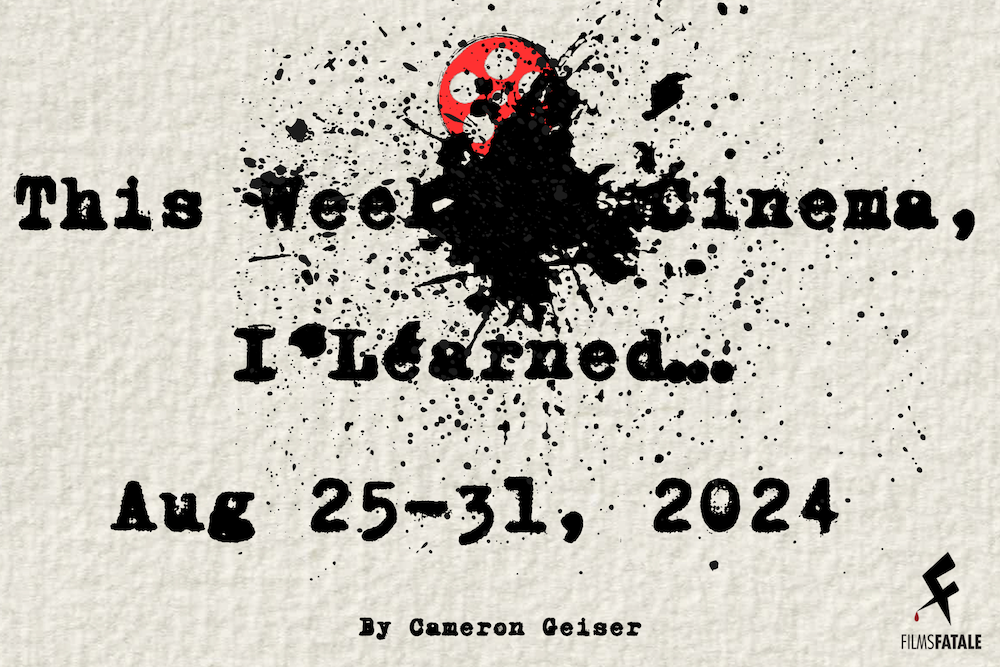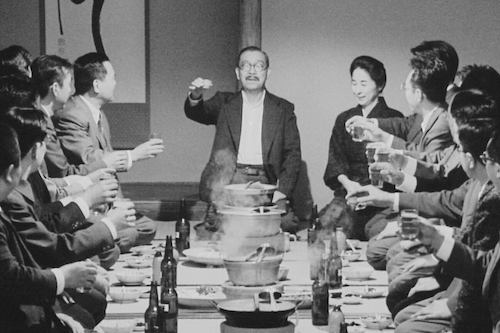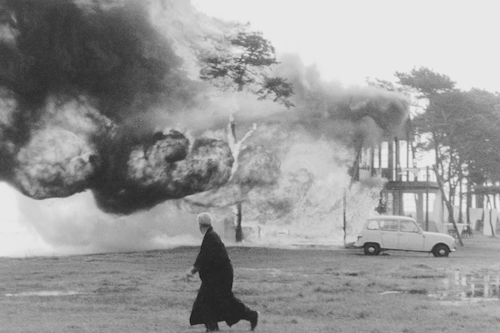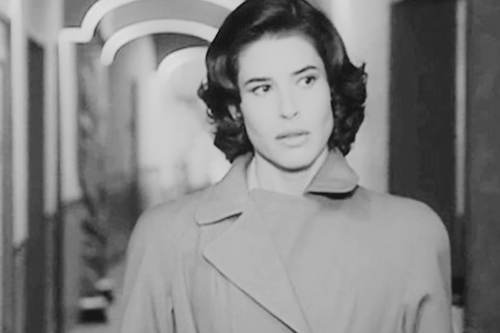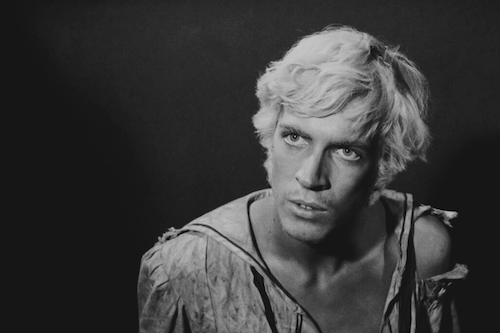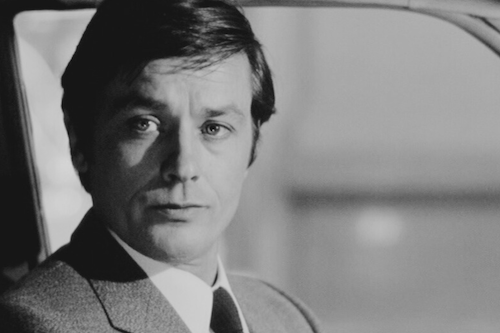This Week in Cinema, I Learned…Aug 25-31 2024
Written by Cameron Geiser
Welcome to This Week in Cinema, a yearlong film criticism project wherein I will be watching a new film that I haven't seen every single day.
Welcome to the final week of August, and thus the end of this month's theme of The Masters of Cinema. For this week I decided to select seven of the finest filmmakers' final films to focus on. These aren't just some of the best filmmakers to ever live, they're also some of the strongest creative influences on me personally. This week's filmmakers are; Akira Kurosawa, Alfred Hitchcock, Andrei Tarkovsky, François Truffaut, Orson Welles, Jean-Pierre Melville, and Agnès Varda. There are several other gigantic influences when it comes to my love, and understanding of, storytelling and cinema itself, but those people fall into one of two categories. Either these filmmakers are still alive and making films as is the case with Steven Spielberg, Martin Scorsese, Quentin Tarantino, or Spike Lee. While the other filmmakers are ones like Yasujirō Ozu, whose final film An Autumn Afternoon- I have already seen, love, and highly recommend to cinephiles and new film fans alike.
I found this week's films to be incredibly informative as some of these legendary directors knew they were likely making their last films, while others were simply making strong entries within their genres of choice and getting into the granular details of what could have been your standard thrillers, mysteries, or adaptations in lesser hands. While Andrei Tarkovsky and Orson Welles' entries weren't exactly indicative of their best work, their films, The Sacrifice and The Immortal Story respectively, just didn't quite land their mark. Each film had slivers and fragments of genius sprinkled in where keen-eyed movie watchers will note that the hands behind the lens were attached to somebody with deep knowledge of the form and medium. The highlights of the week were bookended with Akira Kurosawa and Agnès Varda's films Madadayo (Translated as “Not Yet!”) and Varda by Agnès. Each film focused on the inherent magic and vitality of the Human spirit through struggle, artistic expression, curiosity, community, and persistence.
August 25th
Madadayo (1993)
5/5
Akira Kurosawa, in my mind (and heart!) may be the true master of Cinema and if not the best filmmaker of all time, I'd argue his work is the one of the strongest Oeuvres of the twentieth century across all boundaries. All Art is subjective, this I know, but every wide-eyed student of film, and likewise every crusty auteur and aged lover of cinema can learn something from Kurosawa's approach to artistic expression. Madadayo is Kurosawa's Swan Song and final goodbye to audiences worldwide with this optimistic and warm-hearted story being his last to tell. The story follows Hyakken Uchida (Tatsuo Matsumura), a writer and teacher who retires in the early 1940s once his books begin to garner a large enough readership to sustain life for himself and his wife. As a professor he inspired leagues of students over the years and garnered a reputation and affection from his students who continued to venerate him after his retirement by throwing a lively birthday celebration every year before, during, and after the Second World War.
Which, knowing the story took place in Tokyo before the war really got started, filled me with dread as expectations of these lovely characters getting their homes caught in the horrific fire bombing of the city plagued me- until the professor's house was indeed bombed and the grown men that his students became helped him buy a decent home in the aftermath. There's also a bit where the professor and his wife become absolutely distressed and beside themselves when Nora, a new found alleycat that wandered in one day, goes missing. The alumni gather once again and form a search party looking for the cat- eventually a new cat shows up and their wounded hearts mend with time.
There's something profoundly charming that the Director most obsessed with a macro perspective in storytelling would shrink the scale of his final film to the confines of the life of a Writer in a domestic setting, much akin to how his contemporary colleague Ozu told his stories, through the eyes of the everyday Japanese family figure. I could go on and on and on, but this film was so reaffirming in the objective optimism of embracing life and the joys of all its challenges that I couldn't give it anything less than a perfect score. It also sports an ending that had myself and a friend fist pumping and watery-eyed with a refreshing resolve that life is worth living. The juice is worth the squeeze after all.
August 26th
Family Plot (1976)
4/5
Alfred Hitchcock's Family Plot may not be his best film, nor anywhere near his most well known picture, but it is quintessentially Hitchcockian in form and structure. The story is as calculated as usual when it comes to Hitchcock, we follow two sets of couples as mystery, intrigue, greed, and corruption descend on the foursome. We begin with our fraudulent psychic, Fran (Karen Black) in the middle of a seance set-up wherein Julia Rainbird (Cathleen Nesbitt), an aging wealthy socialite, tells Fran of her recently deceased Sister's tale of abandonment. She gave up a son at birth ages ago and Julia desperately wants to find the boy, now a grown man, so that she may leave him the family fortune. Julia offers Fran $10,000 to find the lost child on little information, and she embarks on the journey with her boyfriend George (Bruce Dern). As it turns out, that child grew up to be a kidnapping murderer and thief plaguing the lives of Diplomats and the wealthy alike. Arthur (William Devane), as he is now known since killing his adoptive parents as a boy and getting a new identity afterwards, and his girlfriend Blanche (Barbara Harris), are jewel thieves and kidnappers, busy managing their affairs when they begin to notice Fran and George closing in on their margins. Family Plot ended up being a really solid thriller pulp crafted by the best to ever do it. Hitchcock's final film may not be well remembered, but it was pretty good!
August 27th
The Sacrifice (1986)
2/5
Andrei Tarkovsky was a challenging filmmaker to say the least. His final film, The Sacrifice, it pains me to say, is my least favorite of his films- and I believe his worst. Now, this isn't to say that it is bad per se, but it *is* painful to experience. All of his films are slow, methodical, some might even say pretentious. However, several of his films are some of the most mystifying, abstract, and wholly unique imagery I have seen applied to the medium of film. Before I go on I would highly recommend several of his other films, notably Solaris, Stalker, and The Mirror in that order. Now, what is this film all about?
Well, it's about a man bargaining with God to save the human race, but namely his family first and foremost, from the nuclear annihilation of the declared Third World War beginning over the radio. As Alexander (Erland Josephson) goes into deep despair with his many long sleep-inducing monologues about humanity and whether or not we deserve life- I found it all to be the most glacial film experience of characters writhing in pain, sorrow, and anger at both God and Humanity. If you look further into Tarkovsky's life experience at the time, he was an expatriate of Russia for a few years by this point and dying of a brain tumor most likely due to the production of Stalker where he and his crew filmed in places and spaces where radiation was prevalent and deadly. This makes sense, but I found this film to be a dreadful time. Please seek out his other films mentioned above, Tarkovsky was truly one of the most gifted filmmakers in his time.
August 28th
Confidentially Yours (1983)
3.5/5
François Truffaut's final film, Confidentially Yours, is ironically quite similar to Hitchcock's final film in that it's good, but not their best work, nor their most popular. Especially odd since Truffaut so adored Hitchcock that his last film would be a tribute film to the late great English Director only a few years after his own death. Truffaut, just like Tarkovsky, also died of a brain tumor a year after the release of his final film. Confidentially Yours is a bit of a boilerplate Noir in that there are interesting aspects to it, namely the leading lady, Barbara (Fanny Ardant), is the private eye gumshoe for this tale but it's nowhere near Truffaut's best. When Julien Vercel (Jean-Louis Trintignant), a real estate agent and Barbara's Boss, is wrongly implicated in a murder while out hunting, they agree that he should lay low while Barbara investigates those involved. You see Julien appears indifferent towards Barbara, even though she's long been attracted to him.
Unfortunately the chemistry isn't quite there between the two actors, but they perform the noir-ish elements admirably. Even though the romance inherent in the premise doesn't exactly play out between the characters as believably as we'd all like, there are Hitchcockian elements that keep things moving along admirably. If you haven't heard, or known, about the book detailing an interview between François Truffaut and Alfred Hitchcock, it's simply titled Hitchcock/Truffaut and I highly recommend it. There's also a documentary adaptation of this book with a shared title that came out in 2015 which I have not seen but after a quick trailer check, it is something I will eventually absorb in due time.
August 29th
The Immortal Story (1968)
3/5
Orson Welles' final narrative film is a tricky label to give The Immortal Story because it really isn't exactly his final film. Technically The Other Side of The Wind, a Netflix project, is his final work that was completed in 2018, and one that I do highly recommend. F For Fake is the final film that he completed while he was alive, but that was a nonfiction documentary about the making of films and the illusions inherent in such delightful trickery (again, another highly recommended documentary). So here lies The Immortal Story, a made for French Television film that doubles as Orson Welles' first color film and his shortest feature length film coming in at just over an hour.
The Immortal Story is also kinda creepy and weird? Welles plays a wealthy merchant in nineteenth-century Macao, who becomes obsessed with bringing to life a popular anecdote about a rich man who gives a poor sailor a small sum of money to impregnate his wife. The Merchant seems not to grasp the reason for storytelling and becomes confused and confounded by the fact that people would repeat tall tales that did not reflect their actual life experiences. Thus he sets out to make the sailors' tale a reality so that one may repeat the story without having the guilt or shame of lying about it. It's kind of a weird one, but it's certainly worth a watch. Orson Welles made far better films though, and I recommend watching Citizen Kane (Yeah yeah yeah, I know everyone knows that one), The Magnificent Ambersons, The Lady From Shanghai, Othello, Touch of Evil, Chimes at Midnight, and The Third Man (which he acted in, but did not direct).
August 30th
Un Flic (1972)
3.5/5
Jean-Pierre Melville is my favorite French Filmmaker and Un Flic, his final film, is a solid effort starring one of his strongest leading men with Alain Delon. Alternatively titled A Cop, or Dirty Money, the film is very much in Melville's normal wheelhouse of gangster crime dramas and the cops that relentlessly pursue them. This one has all of the essential ingredients of Melville's typical style; two men, friends unknowingly on opposite sides of the law, must operate by their codes of brotherhood no matter the cost. Solitude, loneliness, few lines of dialogue and intense scenes of heists, safe cracking, or escaping from the scene of the crime- all of these elements are present as in his best films, but the execution is somewhat lacking here.
It can feel at times as if the characters themselves are just “going through the motions”, but part of the problem may be that Commissaire Edouard Coleman (Alain Delon) and Nightclub owner and criminal Simon (Richard Crenna) should have had their characters swapped. Delon wanted to play against type as the Good Cop for once in his career and American Actor Richard Crenna (He famously played Colonel Trautman in the first three Rambo films) was better equipped for the stalwart yet dead-eyed Police Commissioner. There's also the two main heists, the opening one in the rain which is well constructed and effectively entertaining, but the second one involving a train heist with a helicopter escape *would* be thrilling if it wasn't all done with horrifically plain toy models that completely break the immersion. All in all, not a bad final film from Melville but his best films, Bob The Gambler, Le Doulos, Le Samouraï, Second Wind, and The Red Circle are all must see French films.
August 31st
Varda by Agnès (2019)
4.5/5
Agnès Varda's final film, Varda by Agnès is a documentary that has the French Filmmaker reflecting and musing on her sixty year plus career in film and photography paired with clips from those films. It also has Varda in 2019 at many speaking events discussing artistic expression through the moving image and her perspective on the medium. I've only seen a few of her films, namely Cléo from 5 to 7 and Vagabond, but I do recommend at least watching those two films before this to gain a better point of reference for her work first. Agnès Varda has one of the most curious camera eyes I have seen in film. She chooses to place the camera in the most unique places and spaces, and I love that curiosity, that positive energy in exploring the world through a lens. She really had that thing, that spark that makes her artistry immediately approachable, but also daring in her own way.
That sense of patience and immediacy grew over time by filming more and more documentaries like her work with the Black Panthers in San Francisco in the late 1960s to her collaborative documentary, Faces Places, wandering through rural France with fellow French filmmaker JR in 2017. She began in the French New Wave just as Jean-Pierre Melville helped start it, just as François Truffaut emerged from it, and as Alfred Hitchcock himself influenced these filmmakers and began a dialogue with Truffaut late in both of their careers. Welles, Tarkovsky, and Kurosawa I'm sure had influence and admiration both towards and against the French New Wave as a movement- but I lack the full film history to truly make all of those connections in the here and now. If you see a film with the name Agnès Varda attached to it, give it a chance and watch that thing!
Cameron Geiser is an avid consumer of films and books about filmmakers. He'll watch any film at least once, and can usually be spotted at the annual Traverse City Film Festival in Northern Michigan. He also writes about film over at www.spacecortezwrites.com.

